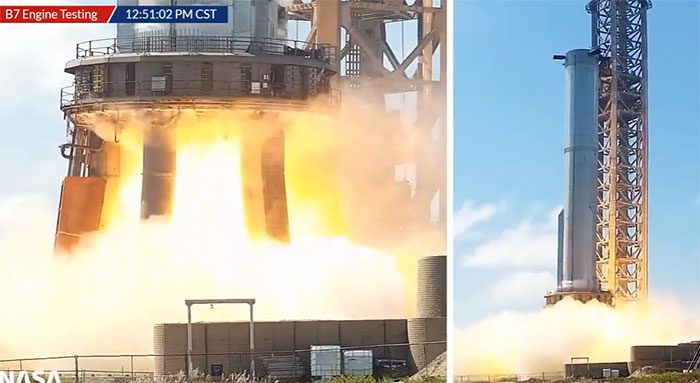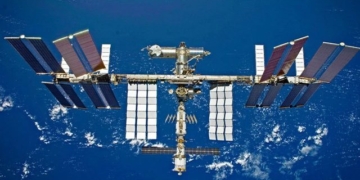SpaceX Conducts First Test Firing of 14 Engines on Super Heavy Rocket, Doubling Previous Test Count
The Raptor engine cluster ignites during the static fire test. (Video: NASA Spaceflight)
SpaceX has conducted its most powerful test to date with the Super Heavy rocket from the Starship program, which is designed to transport humans to the Moon and Mars. The company ignited 14 Raptor engines on Booster 7, the prototype of the Super Heavy rocket’s first stage, during a static fire test at 12:51 AM on November 15, according to Hanoi time, at the Starbase facility in South Texas. The test lasted 10 seconds.
The static fire test is conducted before flight, where the rocket’s engines ignite briefly while the vehicle is anchored to the ground. SpaceX is preparing for the first orbital test flight of Starship with the Booster 7 engine version and the upper stage prototype known as Ship 24. The flight could launch before the end of the year, according to Elon Musk, CEO of SpaceX.
The latest static fire test may represent a significant step towards an orbital flight, with the number of Raptor engines ignited being double that of the previous test on September 8. However, SpaceX still has much work to do to demonstrate that Booster 7 is ready for flight. The vehicle is equipped with a total of 33 Raptor engines, while Ship 24 has 6 Raptor engines.

The test lasted 10 seconds.
SpaceX is developing the Starship system to transport people and cargo to the Moon and Mars, as well as to perform various space missions. Starship prototypes have undergone multiple flight tests to date, but none have flown higher than 10 kilometers and integrated with the Super Heavy rocket.
SpaceX has signed contracts to use Starship with several customers, including NASA (for the Artemis Moon exploration program). If everything goes according to plan, astronauts will land on the lunar surface in 2025 or 2026 using Starship during the Artemis 3 mission. Private customers have also booked Starship for lunar missions, such as Japanese billionaire Yusaku Maezawa, who has reserved a flight around the Moon.


















































